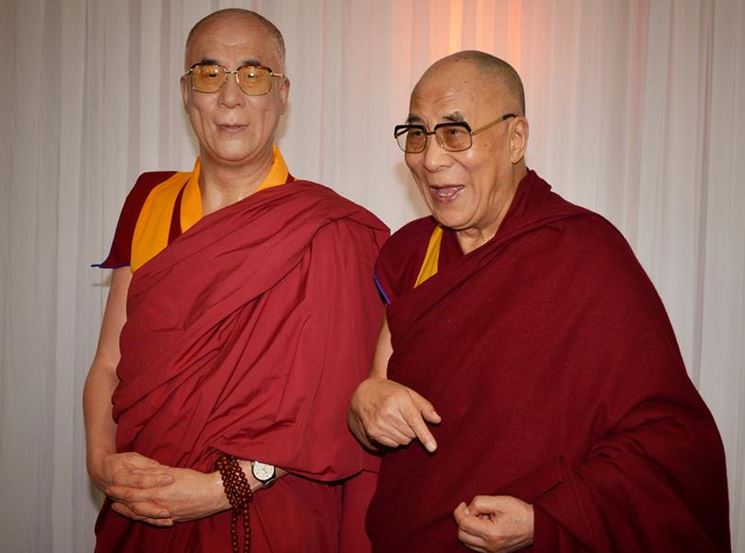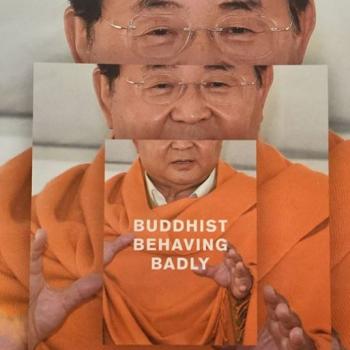
It seems only about 10 years ago that Happiness was all the rage. Martin Seligman, a founder of the Positive Psychology movement had been elected President of the American Psychological Association, everyone was learning how to pronounce Mihály Csíkszentmihályi (author of the book Flow: the Psychology of Optimal Experience), and I even got to take a senior-level philosophy class called something like “Philosophy of Happiness.”
We read Seligman’s book, Authentic Happiness: Using the New Positive Psychology to Realize Your Potential for Lasting Fulfillment, debating the psychology and ethics of various ways of trying to be happy, and even the metaphysics and epistemology of this fundamental human desire. Oh, and Seligman assures us, it sounds like ‘cheek-sent-me-hyle’.
Not long after that I read The Art of Happinessby the Dalai Lama and Howard C. Cutler, M.D. and when Happiness: A Guide to Developing Life’s Most Important Skill by Matthieu Ricard came out, I was eager to read and share it. These books have all been wonderful, and I hope I can safely lump them all into the “good” happiness category.
The “bad” happiness category can be summed up with two words: the and secret.
The unfortunate thing, and this is no doubt by design, is that much of the bad happiness crap out there begs, borrows, and steals from the good happiness people. There is a Dalai Lama quote or a Buddha quote (or a fake one) in practically every article of bad happiness literature. This has had the unfortunate effect of making a lot of smart people see ‘happiness’ in a bad light – some of the funniest parts of Ricard’s book are about his interactions with French intellectuals, who have been très blasé with ‘happiness’ for decades.
Distinguishing between “good” and “bad” happiness isn’t always easy, even when people have agreed about what constitutes each. But suffice to say that real happiness takes time and effort, perhaps even discipline. It will probably require some time away from the world, away from the busy flow of information and quick-fixes; but will also require time back in the world, dealing with one’s own difficulties in the world and helping others with their difficulties too. Leaving the world is sometimes hard for extroverts, coming back can be hard for introverts, but using one’s time wisely in both is hard for everyone.
Be very wary of anyone with a simple tip, trick, or tool, whether it’s cloaked in ancient wisdom or the latest science. There is no simple guide to happiness. We live in a culture of me, me, me / now, now, now. But the ancients and the latest scientists knew/know better. I remember one story coming from a Greeks or Romans of a man asking another if a recently deceased man had lived a good life. “We’ll see.” Said the other. “If his children do well, and their children, and so on. Then we shall say that he lived a good life.”
And in Buddhism it is much the same. The path leading to awakening (the best of the “good” happinesses) is long and arduous. The other kind of happiness, often found in the label kāma, is easy, quick at hand, and ultimately worthless (there is even a Buddhist Kāma Sutta). The happiness that results in following the path is better, I can attest to that just as much as J.S. Mill can assure you that it’s better to be a man dissatisfied than a pig satisfied, better to be Socrates dissatisfied than an ordinary man satisfied, but this happiness is definitely not
easier,
simpler,
or quicker (than the 2-bit happiness peddled by the bad ‘happiness’ industry).
~
For those in the UK, an upcoming conference on this topic -broadly speaking- might be of interest:
- Buddhism and Human Flourishing Conference – University of Chester 25th June 2013 The line-up for second conference in the Philosophy and Religious Practices on June 25th at the University of Chester has now been confirmed. We are delighted that Gina Clayton and Jamie Creswell are able to join the stellar line-up we already have confirmed. They will be focusing on the current engagement by Buddhism in public life and social action in the UK and elsewhere.
For full details of the conference aims and participants please click below:
Buddhism and Human Flourishing Flier
SPEAKERS include Professor Peter Harvey, Caroline Brazier, Ratnaguna, Dr Mary Welford, Dr Paramabandhu Groves, Gina Clayton, Jamie Cresswell
Cost: Waged : £25.00/Unwaged: £10.00 (Book online http://shopfront.chester.ac.uk/ and click on ‘event booking’)
Enquiries to Carly McEvoy[email protected] 01244 511031
* If you enjoyed this, earn karma by sharing it on reddit or follow me on twitter @buddhistethics.











